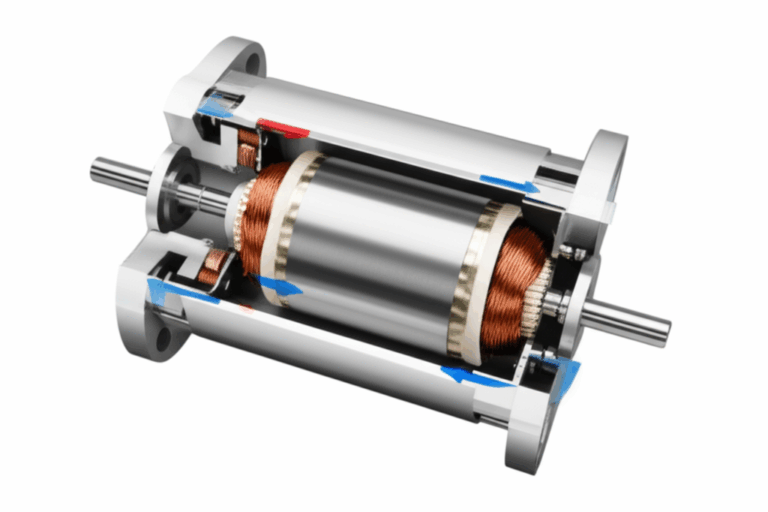
What is the Motor Insurance Bureau (MIB)? Your Essential Guide to Uninsured Driver Compensation in the UK
Table of contents
- Introduction: How I first learned what the MIB really does
- What the MIB is in plain English
- The MIB’s core mission: Protecting road users
- Compensation when the other driver is uninsured
- Compensation when the driver is untraced (hit and run)
- Managing the Motor Insurers’ Database (MID) and AskMID
- Preventing uninsured driving through awareness and enforcement support
- How the MIB is funded and why that matters to you
- When to contact the MIB: Eligibility and common scenarios
- The MIB claims process: Step-by-step from first report to payment
- Key MIB agreements and its international role
- What the MIB is not: Boundaries that save you time and stress
- The broad impact and importance of the MIB
- FAQs: Quick answers from my experience
- Practical tips, pitfalls, and how to strengthen your claim
- Not to be confused with electric motors: a quick note
- Conclusion: Know your rights and use the safety net
Introduction: How I first learned what the MIB really does
I remember the day a friend rang me in a panic. A driver clipped his rear wheel then disappeared into the evening traffic. No number plate. No witnesses. No insurance details. He asked a fair question. “If the driver vanished who pays for the damage and the physio I now need?”
That’s when I walked him through the Motor Insurance Bureau. I’d used the MIB before after supporting a colleague who got sideswiped by an uninsured driver. I knew the basics. Still I learned far more when I helped my friend collect evidence and start a claim. I learned how the MIB steps in when the usual route fails. I learned why reporting to the police early matters. I learned how time limits can make or break a case. Most of all I saw relief on his face when someone finally said “We can help.”
If you’re reading this after a scary moment on the road I wrote this for you. I’ll explain what the MIB is how it works and what to do next. I’ll keep it simple and I’ll share the tips I wish I’d known the first time I helped someone through it.
What the MIB is in plain English
The Motor Insurance Bureau (MIB) is a UK non-profit body funded by motor insurers that pays compensation to victims of uninsured or untraced drivers. In other words if the person who hit you has no valid insurance or they flee the scene and cannot be identified the MIB exists to stop you from being left with the bill. The MIB also runs the Motor Insurers’ Database (MID) which lets police and the public check if a vehicle is insured through services like AskMID.
Why does it exist? UK law makes third party motor insurance compulsory under the Road Traffic Act 1988. That law only protects people in practice if there’s a backstop for when drivers ignore the rules or when they run away. The MIB is that backstop. It keeps the promise of compulsory insurance intact so victims are not stranded.
The MIB’s core mission: Protecting road users
Compensation when the other driver is uninsured
When the at-fault driver is identified but has no valid insurance the MIB can step in under the Uninsured Drivers Agreement. You still need to prove liability and your losses. Think of it like claiming against an insurer that doesn’t exist. The MIB checks fault then covers eligible damages because the driver failed to comply with compulsory insurance law.
In my experience people often discover the other driver is uninsured when their insurer runs a check against the MID or when police confirm it after a roadside stop. Either way don’t panic. If you’re the innocent party the MIB may compensate you for personal injury and usually vehicle or property damage subject to the rules in force at the time of your claim.
Compensation when the driver is untraced (hit and run)
If the driver can’t be identified the MIB handles claims under the Untraced Drivers Agreement. This tends to cover hit-and-run incidents where you never got a plate or the driver fled before anyone saw. The rules differ from uninsured cases so details matter. For property damage there are stricter conditions and reporting deadlines. For personal injury the MIB usually requires prompt reporting to the police and reasonable efforts to identify the driver. In my friend’s case his early 999 call and a same-day report at the station made a real difference.
One quick takeaway. If you have a hit and run incident report it to the police as soon as possible. Tell them it was a road traffic accident. Get a reference number. If the MIB asks when you reported the crash you’ll have it ready.
Managing the Motor Insurers’ Database (MID) and AskMID
The MID is a central database of insured vehicles in the UK. The MIB runs it. Police check it at the roadside and they run millions of MID queries every year. You can check your own vehicle on AskMID if you’re unsure your policy went live or to confirm a car you hit is insured before trading details. I’ve used AskMID in that tense moment after a minor bump when the other driver started shifting stories about their insurer. A quick check saved us both from confusion.
Better enforcement depends on data. The MID helps police spot vehicles with no insurance then remove them from the road. That reduces the chance of you being hit by someone with no cover at all. It also supports fair premiums because the cost of uninsured driving falls when enforcement improves.
Preventing uninsured driving through awareness and enforcement support
The MIB doesn’t just pay claims. It also works with the Association of British Insurers (ABI) police forces and the Department for Transport to reduce uninsured driving. It supports awareness campaigns that spell out the penalties for uninsured driving which can include fines points and vehicle seizure. In my view this dual role matters. The MIB pays victims today and helps shrink the problem over time.
How the MIB is funded and why that matters to you
Here’s the bit many people don’t realise. UK motor insurers fund the MIB through a levy. They pass that cost into premiums. So we all chip in a small amount to support victims of uninsured or untraced drivers. Estimates from industry sources often place that contribution in the ballpark of £30 to £50 on the average premium each year. It fluctuates with claims volumes and market conditions. The wider cost of uninsured driving to law-abiding motorists has been estimated at hundreds of millions of pounds a year.
Is the problem big? Sadly yes. MIB reporting suggests a meaningful share of vehicles on UK roads remain uninsured which explains why the MIB handles tens of thousands of claims annually including personal injury and property damage. Police run well over a million checks on the MID each year which shows how actively they use it to chase uninsured vehicles off the road.
You might wonder why you should pay for other people’s mistakes. I used to feel that frustration too. Then I saw what happens when an innocent pedestrian a cyclist or a family in a small hatchback gets hit by someone with no cover. Without the MIB those people would face medical bills lost earnings and car repairs with no one to claim against. The levy feels fairer when you meet the people it saves.
When to contact the MIB: Eligibility and common scenarios
If you’re unsure whether the MIB is relevant to your situation ask yourself three questions.
- Was the other driver uninsured?
- Did the other driver flee the scene and remain unidentified?
- Is there no valid insurance in place for the at-fault vehicle for reasons outside your control such as insurer insolvency?
If your answer is yes to any of those then the MIB might be your route to compensation. Here are common scenarios I’ve seen where contacting the MIB made sense.
- Uninsured at-fault driver: You exchanged details at the scene then later learned from the police or AskMID that their policy was invalid or never existed.
- Hit and run: You did not get a plate. Witnesses did not identify the vehicle. The police report confirms the driver is untraced. The MIB may still compensate you if you meet the conditions.
- Insurer insolvency or technical gaps: Rare but possible. The MIB can sometimes provide a safety net when a policy cannot respond even though the victim is innocent.
- Vulnerable road users: Cyclists pedestrians and passengers injured by uninsured or untraced drivers can all claim when eligible. I’ve seen the MIB cover rehab and income loss in serious cases which changes lives.
A quick note on jurisdiction. The MIB operates across the UK. Separate arrangements may apply in territories like the Isle of Man or Channel Islands so check local guidance if your incident occurred outside the UK mainland. If your collision involved foreign-registered vehicles or travel across borders the MIB’s international role may come into play through the Green Card system.
The MIB claims process: Step-by-step from first report to payment
I’ll break this into stages because the order matters.
1) Immediate actions after the accident
- Make the scene safe. Call 999 if anyone is injured.
- Report the incident to the police as soon as possible especially for hit-and-run cases. Get the incident number.
- Gather evidence. Photos of the damage the road layout and any debris. Dashcam footage. Witness names and phone numbers. Details of the other vehicle if known. Your injuries including visible marks or swelling.
- Seek medical attention promptly. Your health comes first. Prompt records also link your injuries to the collision.
- Tell your own insurer quickly. Even if the other driver is uninsured your policy likely requires notification. This also helps coordinate any vehicle damage assessment.
Tip from experience. Write a short account while it’s fresh. Note your speed weather conditions and anything the other driver said at the scene. Small details fade fast.
2) Decide whether to claim through your own insurer or the MIB
If the at-fault driver is uninsured you can often claim through your own comprehensive policy for vehicle repairs then your insurer may seek recovery from the MIB. If you have third party only cover or you suffered injury you may approach the MIB directly. For hit and run injury claims the MIB is usually the primary route.
I weigh three questions here. What cover do I have? How fast do I need repairs? Do I have a strong chance of identifying the driver through police or CCTV? If you’re unsure a brief chat with a solicitor or your insurer can clarify the best route.
3) Submitting your claim to the MIB
You can apply directly online via the MIB website. You’ll provide basic details of the collision why you believe the at-fault party was uninsured or untraced and the injuries or losses you want to claim. Attach or list your evidence. Include the police incident number. If you used AskMID include what you found and when.
Keep a simple folder for documents. Police contacts medical notes injury photos receipts for treatment repair estimates wage slips showing lost earnings and any other out of pocket expenses. If you kept a diary of symptoms or pain levels that helps too especially for soft tissue injuries.
4) The investigation phase
The MIB will assess liability and causation. Expect questions about how the accident happened and the evidence that supports your account. For untraced drivers they will check that you reported to the police promptly and made reasonable efforts to identify the vehicle. For uninsured drivers they will verify the lack of valid cover with the MID and the relevant insurer if needed.
They will also look at your losses. For personal injury they may ask for a medical assessment with an independent expert. For property damage they will review repair estimates or valuations. If your car is a write-off they will consider market value. Be responsive and keep your replies clear and timely. It shortens the back and forth.
5) Settlement and payment
If the MIB accepts liability they will make an offer. You can accept it or negotiate if you feel it undervalues your losses. Legal representation is not compulsory. Still I’ve seen solicitors add value in complex injury cases where prognosis is uncertain or where future care and earnings loss are significant. Their fee model and potential deductions vary so weigh cost versus benefit before you sign anything.
Once you accept an offer payment follows. The time from claim to settlement varies with complexity and injury recovery. Straightforward property damage cases can resolve faster. Serious injury claims may take longer because you don’t want to settle before you understand the long term impact. I tell people to be patient but persistent. Keep treatment records updated and share new information promptly.
6) Important time limits
Time limits can differ between agreements and claim types. In general UK personal injury claims often have a three year limitation period from the date of the accident though exceptions exist for children or individuals lacking capacity. Hit and run property damage has stricter reporting and claim timing requirements so act fast. The safest move is to report to the police immediately and start the MIB process as soon as you can. If in doubt check the latest guidance on the MIB website or speak with a solicitor.
Key MIB agreements and its international role
The Uninsured Drivers Agreement
This agreement governs how the MIB pays claims when the at-fault driver is identified but has no valid insurance. It sets out eligibility rules the types of losses covered and how liability is decided. It also covers how the MIB may recover money from the uninsured driver afterward.
The Untraced Drivers Agreement
This covers claims where the at-fault driver cannot be identified. It sets stronger conditions to prevent fraud and to ensure claims are genuine. Police reporting and reasonable efforts to trace the driver are key. Property damage under this agreement has tighter rules than personal injury. I always stress that early action and detailed evidence make a big difference here.
The Green Card system and the Council of Bureaux
The MIB acts as the UK Green Card Bureau. It’s part of an international arrangement coordinated by the Council of Bureaux that helps resolve cross border motor claims. If a foreign vehicle hits you in the UK or a UK vehicle is involved in a crash abroad the Green Card system helps identify the body that should handle the claim. The details can get technical because rules vary by country and by where the accident happened. If your case spans borders ask the MIB for guidance early and keep every scrap of documentation.
What the MIB is not: Boundaries that save you time and stress
- The MIB is not a general insurance company. You don’t buy a policy from them and they don’t set your premium.
- The MIB does not regulate insurers. Regulators like the Financial Conduct Authority (FCA) and the Prudential Regulation Authority (PRA) oversee insurers and financial firms.
- The MIB does not resolve disputes between you and your own insurer about your comprehensive or third party policy. The Financial Ombudsman Service may help with those disputes.
- The MIB is not a claims management company. It’s a statutory safety net funded by insurers to uphold compulsory motor insurance.
- The MIB does not handle every kind of road claim. If the other driver is insured you usually claim against their insurer instead.
Knowing these boundaries keeps you on the right path. I’ve seen people lose weeks arguing with the wrong organisation when a quick call elsewhere would have solved it.
The broad impact and importance of the MIB
I think about the MIB’s impact in three layers.
- Justice for victims: People hurt by uninsured or untraced drivers still get compensated. Without the MIB many would face medical costs lost earnings and life changes with no recourse.
- Deterrence and enforcement: The MID gives police a powerful way to identify uninsured vehicles. That deters offending drivers and makes the roads safer for everyone.
- Underpinning the law: Compulsory insurance only works if victims can rely on being made whole. The MIB keeps that promise credible which supports road safety and public trust.
I’ve seen the MIB step in for cyclists pedestrians and bus passengers. I’ve seen payouts cover rehab and replace income so families keep their homes. These aren’t abstract benefits. They’re real people who get their footing back after a bad day.
FAQs: Quick answers from my experience
- How long does an MIB claim take?
It depends on complexity and injury recovery. Straightforward property damage claims can resolve in months. Serious injury cases take longer because you don’t want to settle before your prognosis is clear.
- Can I claim for both personal injury and vehicle damage?
Yes in many cases. The type of damage covered and the process depends on whether your claim is under the Uninsured Drivers Agreement or the Untraced Drivers Agreement. Property damage under untraced claims has tighter conditions.
- Is legal representation necessary for an MIB claim?
Not always. Many people handle straightforward claims themselves. If you have serious injuries complex losses or disputes over liability a solicitor who knows MIB work can help you value the claim and negotiate.
- What happens if my MIB claim is rejected?
You can ask the MIB to review the decision. You may pursue court proceedings to challenge liability or quantum under the civil procedure rules. Get legal advice if you plan to litigate. Keep your evidence organised and timelines clear.
- Is the MIB relevant for motorcycle or pedestrian accidents?
Yes. The MIB supports any innocent third party victim including motorcyclists pedestrians cyclists and passengers when the at-fault driver is uninsured or untraced.
- How is the MIB funded?
Through a levy on UK motor insurers which feeds into premiums. You might see estimates that place the contribution on typical policies in the tens of pounds per year.
- What is AskMID and when should I use it?
AskMID lets you check if a vehicle appears insured on the MID. Use it after a collision to confirm the other driver’s insurance or when you’re unsure if your own policy has gone live.
- Does the MIB cover losses like excess and car hire?
It can cover eligible losses caused by an uninsured or untraced driver subject to the applicable agreement and evidence. Keep receipts and keep hire durations reasonable.
- What documents will I need?
Police incident number photos witness details medical notes repair estimates proof of earnings and receipts for out of pocket costs. Think belt and braces. More is better.
- What about data and privacy?
The MIB handles personal data under the UK’s data protection laws. You can expect them to request and share data with relevant parties like police or insurers where needed to verify your claim.
Practical tips, pitfalls, and how to strengthen your claim
Here’s the checklist I run through with anyone I help.
- Report early to police. This is non negotiable for hit and run cases.
- Gather evidence now not later. Photos video witnesses maps and measurements if safe.
- Keep a pain and recovery diary. Jot down symptoms treatment and time off work.
- Tell your insurer even if you’ll claim via the MIB. Your policy likely requires it.
- Use AskMID if details are in dispute. It clears up confusion fast.
- Stay organised. One folder with everything. Label files and dates.
- Be honest and consistent. If something is unclear say so. Guessing hurts credibility.
- Don’t settle too soon after injury. Understand your prognosis first.
- Consider legal advice for serious or complex cases. It can pay for itself.
- Mind the time limits. They can be strict especially for property damage in untraced claims.
Common pitfalls I see.
- Late police reporting on hit and run. This can sink a claim.
- Incomplete loss evidence. Keep receipts and wage proof.
- Assuming your comprehensive policy covers everything. Check. You may still need the MIB for injury or certain losses.
- Accepting a lowball first offer without understanding long term impact. Ask questions. Negotiate if needed.
Not to be confused with electric motors: a quick note
Every so often someone lands on a “motor insurance” article when they meant “electric motor.” If you’re actually researching motor components not the Motor Insurance Bureau you might be looking for topics like electrical steel laminations used in motors and transformers or the structure of motor core laminations that reduce eddy current losses or the role of a stator core lamination in BLDC and AC machines. Those are engineering subjects and they’re fascinating they just sit in a very different world than UK motor insurance.
Key MIB agreements and its international role
- Uninsured Drivers Agreement: For known at-fault drivers with no valid insurance.
- Untraced Drivers Agreement: For hit and run cases when the driver can’t be identified.
- Green Card Bureau role: For incidents with foreign vehicles and cross border claims under the Council of Bureaux framework.
A quick caution. Terms change over time. Always check the latest MIB guidance on eligibility and time limits. If your accident happened abroad or involves a foreign-registered vehicle ask the MIB which body handles your case. You’ll save weeks by getting to the right desk first.
What the MIB is not: Boundaries that save you time and stress
- Not an insurer you buy cover from.
- Not a regulator like the FCA or PRA.
- Not the right place to complain about your own insurer. That’s usually the Financial Ombudsman Service.
- Not a claims management company.
When in doubt call the MIB for signposting. They prefer pointing you in the right direction instead of watching you spin your wheels.
The broad impact and importance of the MIB
- It keeps the promise of compulsory motor insurance real.
- It deters uninsured driving by backing enforcement through the MID and AskMID.
- It protects vulnerable road users who would otherwise fall through the cracks.
- It spreads the cost of uninsured driving fairly through a levy rather than leaving victims stranded.
I’ve watched the MIB turn disaster into a survivable setback. That’s a safety net worth funding.
Conclusion: Know your rights and use the safety net
If you were hurt or your vehicle was damaged by an uninsured or untraced driver you are not out of options. The Motor Insurance Bureau exists to make sure you can still claim compensation when the usual route fails. Report to the police. Gather evidence. Use AskMID. Start your claim early. Keep your documents straight. Ask questions until you understand the offer on the table.
You didn’t choose to be hit by someone with no insurance or by a driver who ran. You can choose what you do next. Use the system that was built for exactly this moment. The MIB is there to help you get back on your feet.








